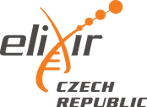About
Programme
Module 1 Wednesday 23rd-Friday 25th
Day 1 – Wednesday – RStudio basics
9:30 – 11:00 Understanding basic R data structures
11:00 – 11:15 Break
11:15 – 12:15 Understanding basic R data structures continues
12:15 – 13:15 Lunch
13:15 – 14:45 Data transformation with tidyverse
14:45 – 15:00 Break
15:00 – 16:00 Data transformation with tidyverse continues
Day 2 – Thursday – Data visualisation theory & Data visualisation with RStudio
9:00 – 10:30 Data visualisation theory: How to choose appropriate chart types
10:30 – 10:45 Break
10:45 – 12:15 Data visualisation theory: Common mistakes and best practices
12:15 – 13:15 Lunch
13:15 – 14:45 Data visualisation with RStudio: Grammar of graphics
14:45 – 15:00 Break
15:00 – 16:30 Data visualisation with RStudio: Overview of geoms
16:30 – 16:45 Break
16:45 – 17:45 Data visualisation with RStudio: Customization and patchwork
Day 3 – Friday – Shell novice & Introduction to g:Profiler
9:00 – 10:30 The Unix shell: Introduction and navigating files and directories
10:30 – 10:45 Break
10:45 – 12:15 The Unix shell: Working with files and directories
12:15 – 13:15 Lunch
13:15 – 14:15 The Unix shell: Pipes and filters and finding things
14:15 – 14:30 Break
14:30 – 16:00 g:Profiler: Functional enrichment analysis in g:Profiler
16:00 – 16:15 Break
16:15 – 17:45 g:Profiler: Conversion tools in g:Profiler and programmatic access
Module 2 Monday 28th-Tuesday 29th
Day 1 – Monday – Introduction to statistics with R
9:30 – 11:00 Warm-up with Exploratory data analysis (practical),
Hypothesis testing (theory)
11:00 – 11:15 Break
11:15 – 12:15 Hypothesis testing (practical)
12:15 – 13:15 Lunch
13:15 – 14:45 Multiple testing correction (practical),
Non-parametric test for two samples (theory)
14:45 – 15:00 Break
15:00 – 16:00 Non-parametric test for two samples (practical)
Day 2 – Tuesday – Introduction to statistics with R
9:30 – 11:00 Multiple sample testing (theory + practical),
ANOVA, Tukey Post-hoc test, Kruskal-Wallis
11:00 – 11:15 Break
11:15 – 12:15 Correlation and regression (theory + practical)
12:15 – 13:15 Lunch
13:15 – 14:45 Linear mixed models (theory), categorical data (theory),
χ2 test (practical)
14:45 – 15:00 Break
15:00 – 16:00 Fisher’s exact test (theory, practical)
Instructors
Requirements
Please note, if you get >= 50%, you are eligible for this course. Else, try to find a Basics in R course before attending this one – or attend module 1!”
